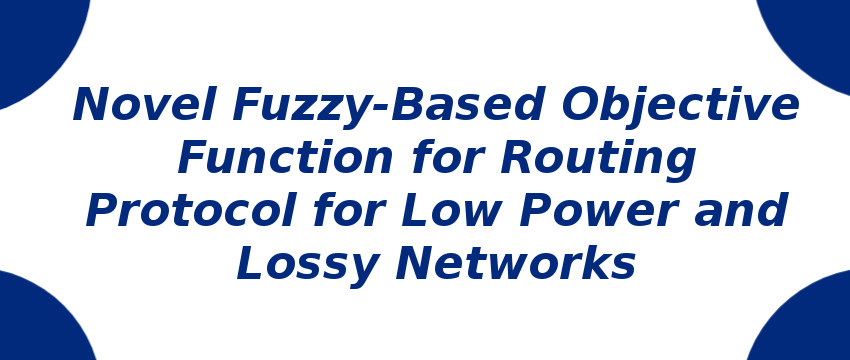Research Area: Internet of Things
In both wired and wireless networks, data routing along the best path is constantly a top priority for the research community. Currently, the most widely adopted routing algorithms in the Internet of Things is the Routing Protocol for Low Power and Lossy Networks (RPL). In RPL, selecting the optimal path primarily depends on the Objective Function (OF). Multi-attribute OFs are thought to be a viable method for choosing the best path, but the main concern here is how these attributes must be coupled. Such issues are being taken care by fuzzy based technologies as it deals with imprecise or distorted attribute values. Most of the fuzzy logic-based OFs are mainly based on the Mamdani method, which has low accuracy. However, a better accuracy is observed in Takagi–Sugeno method. Hence the paper develops a Fuzzy-based Takagi and Sugeno Objective Function (FTSOF) for RPL. The FTSOF technique combines the routing metrics to give a crisp value based on which the parent node is selected. The proposed approach is implemented in the Contiki operating system. The simulation was carried out on different network densities and various data rates. The performance parameters considered are packet delivery ratio, latency, network setup time, and control message overhead. The results shows that FTSOF outperforms the state-of-the-art techniques such as OF-0, MRHOF, and the Fuzzy-based Mamdani Objective Function (FMOF).
Keywords:
Author(s) Name: Sneha Kamble , Prashant Bhilwar , B.R. Chandavarkar
Journal name: Ad Hoc Networks
Conferrence name:
Publisher name: ScienceDirect
DOI: 10.1016/j.adhoc.2023.103150
Volume Information: Volume 144, (2023)
